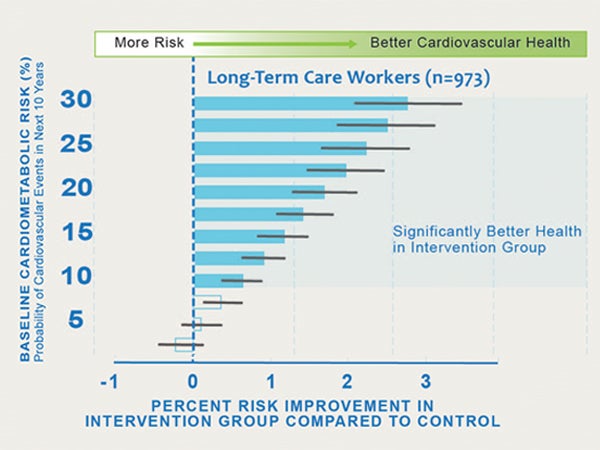A reduction in stressful conditions at work has now been linked to a reduction in cardiovascular disease (CVD) among those employees who were at an elevated risk of CVD at the start of the intervention study, especially if they were older workers. Researchers affiliated with The Work, Family & Health Network Study deployed interventions at two different types of works sites (IT and long-term care) designed to increase work-life balance…
What can you do to improve your performance at work? Get a few more minutes of sleep!
Data collected during the Work, Family & Health Network study suggests that every minute counts when it comes to work performance! Just 16 minutes of sleep loss can negatively impact work performance the next day. Learn more in this article written by WFHN researchers. Photo: William Brawley on Flickr
Use of randomized control trials (RCTs) in social interventions not without challenges, but still valuable
Harvard Pop Center Director Lisa Berkman has authored a study published in European Journal of Public Health that finds that while RCTs can pose challenges for both social and biomedical interventions alike, they still can serve as a helpful way to identify causal relationships.
Companies with family-friendly policies may help retain & boost performance of professional women caregivers who have other caregiving duties
Professional women caregivers in long-term care facilities with double-duty (unpaid child care) and triple-duty (both unpaid child and elder care) responsibilities had better retention and engagement in their jobs when they felt more supported by their husbands. The WFHN researchers have published their findings in The Gerontologist.
WFHN study cited in New York Times on closing workplace gender gap by giving employees schedule control
A recent study published in the journal Social Problems by a team of WFHN researchers is referenced in this New York Times piece that examines the factors involved with the workplace gender gap—including unequal pay, promotions, and longevity—and how embracing flexible schedules may help to close this gap.
Better sleep for employees, especially older workers, with more workplace flexibility & supervisor support
A study (in press in Sleep Health) by the WFHN reveals that those employees (particularly older workers) of an IT company that took part in an intervention study evaluating the effects of increased workplace flexibility and supervisor support experienced better duration and quality of sleep, as measured with wrist actigraphy.
Work demands that create conflict in our personal lives found to impact sleep
A novel study published in the journal Sleep by the Work, Family & Health Network has found that when work demands conflict with our personal lives and create stress, the duration, quality and regularity of our sleep may be negatively impacted.
Erin Kelly to launch Fall 2016 Harvard Pop Center Seminar Series on Monday, Sept. 26
Erin L. Kelly, PhD, professor of work and organization studies at the MIT Sloan School of Management, will present on a study by the Work, Family & Health Network (WFHN), a trans-disciplinary research effort designed to enhance the understanding of the impact of workplace practices and policies on work, family life, and health.
Parental warmth supports adolescents’ recovery from daily stressors
Daily stressors impact the mood, physical health and cortisol patterns of adolescents. A Work, Family & Health Network intervention study published in Health Psychology finds that youth who experienced parental warmth were better able to recover from the symptoms of daily stressors.
Cigarette consumption down among smokers working at site of work-family intervention
As part of the Work, Family & Health Network study of the impacts of a work-family intervention, nursing home workers who smoke were followed six months after a workplace intervention aimed at reducing work-family conflict was implemented. The WFHN study is published in the Journal of Epidemiology and Community Health.

